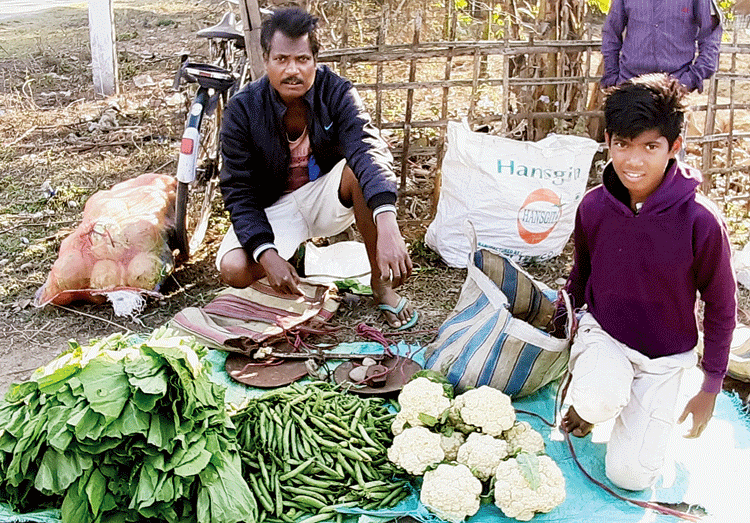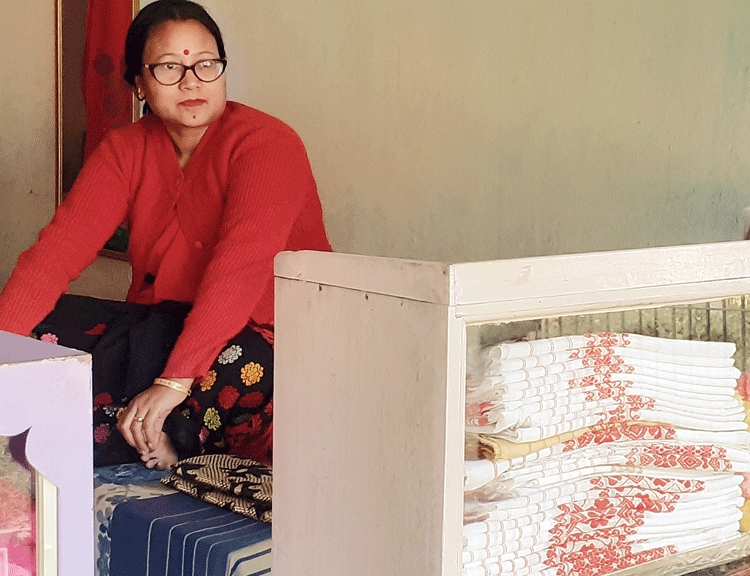
A local farmer at his vegetable stall in Doomdooma
The anti-Citizenship Amendment Act (CAA) agitation in Assam is proving to be a boon for the indigenous Assamese population in the rural belt as the sale of local agricultural produce, poultry products and handicraft items has gone up at the protest venues.
Khujen Moran, a farmer, told The Telegraph: “Kakopathar has witnessed many a massive protest against the CAA since the Lok Sabha passed the citizenship bill on December 9. People from across the districts and even from Guwahati are coming to join the peaceful agitations. So we, too, go to the protest sites to sell rice, crushed rice, jaggery, coconut, orange, lemon, leafy vegetables, betel nut, betel leaves and poultry products like eggs, ducks, hens and handicraft items such as gamosa and mekhela sador. The demand is very good, which is a pleasant surprise for us.”
The local leaders realise that besides protesting against the CAA, the indigenous people must be economically strong too.
The president of the Asom Jatiyatabadi Yuba Chhatra Parishad (AJYCP), Surojit Moran, said: “Advance information is circulated by student activists in each village about a CAA protest, its time and venue. I feel good to see that mini makeshift markets are set up by them near the protest locations. Educated unemployed youths, women, farmers and even many poor students are getting opportunities to earn. It is good and it is also a message to the government that rural people, too, want to do something. All that is required are opportunities and proper venues.”
It is a tradition to felicitate each other with gamosa during any programme and so the demand of locally prepared gamosa is also high.
“Altogether 42 gamosa were sold in a single day. The youths buy gamosa to felicitate the invited guests. I am happy that protest venues provide an opportunity to sell our products. Although Rongali Bihu is in mid-April, this is like Bihu sale,” Momi Deka, a resident of Daisajan, said. People with their families, including children, set off for the protest sites early in the morning. For refreshments, they purchase fruits, eggs and other edibles.
“Many people come from far-flung places. So, after the protests while returning home they buy rice, chicken and ducks for preparing dinner. That helps us to make a fast buck,“ Gajen Moran, a villager of Phillobari, said.
Tulya Chetia, a teacher of a village in Sivasagar district, said: “The Assamese-dominated villages have fertile land and are rich in natural resources. The people are hardworking and productive. All they need is good road communication and regular markets. Each Assamese village have some specialised products — from brooms to bamboos, cane to tea, rice to betel nut.”










